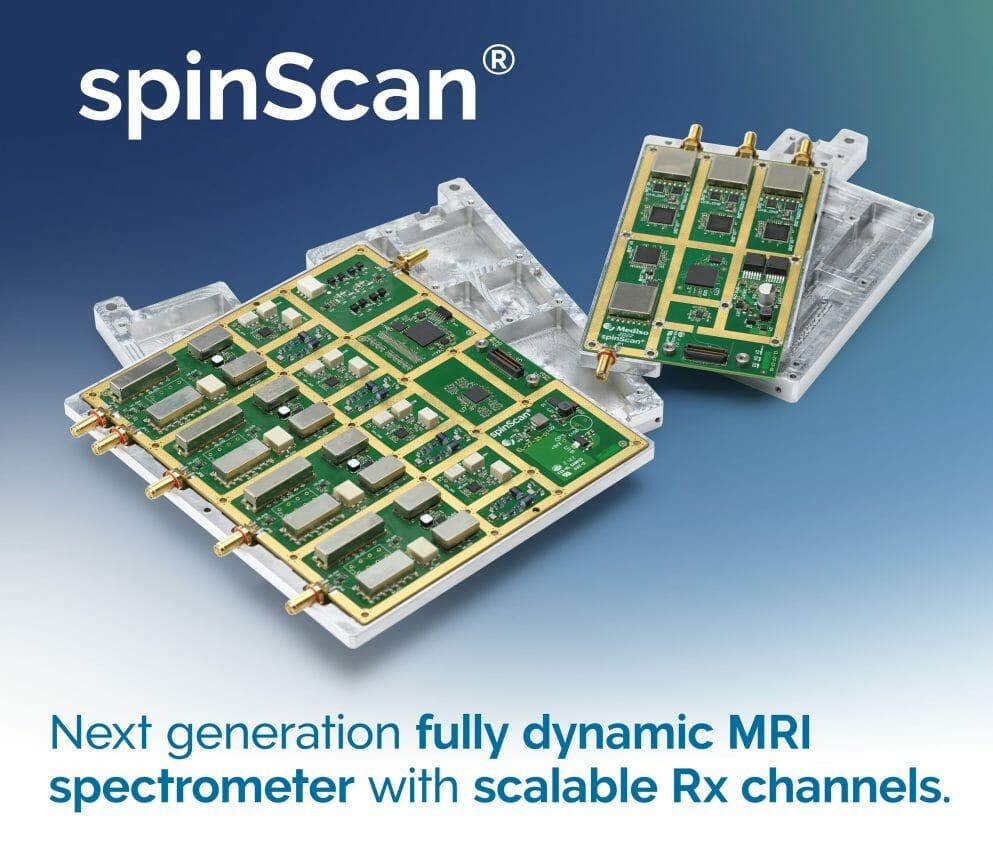Mediso released their next generation MRI spectrometer spinScan® the successor to the previously used console in the nanoScan® MRI product line. The new spectrometer was optimized for MRI applications delivering an ultra-low-noise expandable RF front-end and real-time dynamic shimming.
The spectrometer is interfaced with three Mediso developed software applications to deliver a complete MRI workflow: the Sequence Development Platform for absolute control over the pulse sequences and reconstruction algorithms, the FDA approved and clinically validated InterView™ FUSION and Nucline™ for routine acquisition planning, reconstruction, image post-processing and evaluation.
Gergő Bagaméry, Director of Preclinical Product Development at Mediso commented: “Our main goal was to have a dedicated MRI spectrometer that is optimized for image quality, and works seamlessly with our clinically validated software platforms. We believe it is a big jump in performance for our research scanners as well as perfect platform for a potential clinical / OEM product line.”
The spinScan® spectrometer is based on a technology that has been continuously developed for 10+ years, featuring an FPGA SoC platform with highly scalable transceiver architecture enabling more than 128 receiver channels and microsecond gradient resolution with closed-loop control via high-speed optical interfaces. Eddy current compensation is realized through digital cross term pre-emphasis adjustment allowing for improved EPI image quality. The spinScan® spectrometer features Mediso’s extensive pulse sequence library with a wide range of readily optimized imaging protocols including all relevant anatomical sequences as well as high-end neuroimaging and spectroscopy protocols.
The console creates a future proof platform for all nanoScan® MRI systems, especially empowering the standalone MRI’s used for high-end preclinical research applications.


